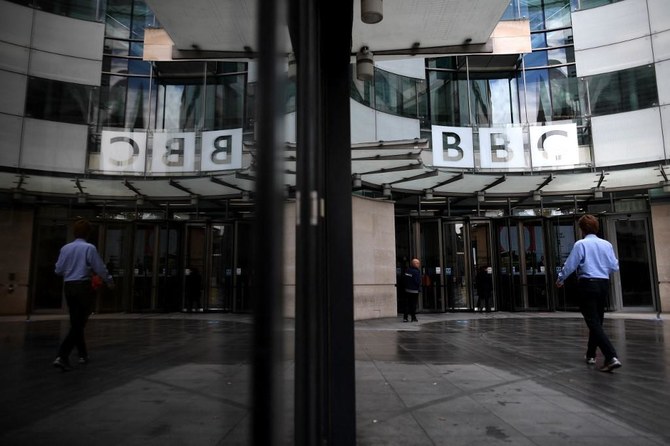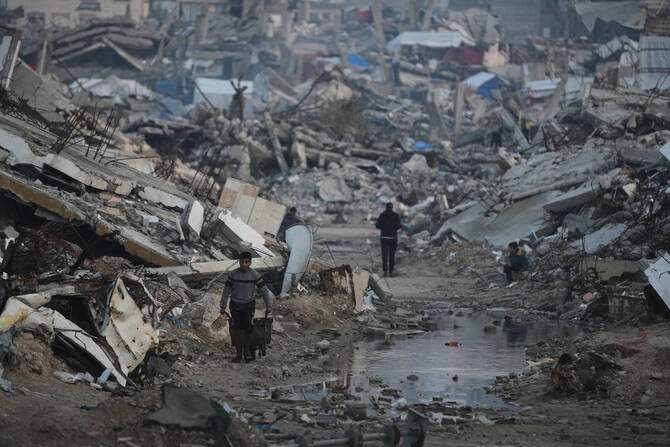LONDON: The BBC said on Friday it had stopped reporting in Russia after parliament passed a law there imposing a jail term of up to 15 years for anyone found to be intentionally spreading "fake" news.
Russian officials have said that false information has been spread by Russia's enemies such as the United States and its Western European allies in an attempt to sow discord among the Russian people.
Lawmakers passed amendments to the criminal code making the spread of "fake" information an offence punishable with fines or jail terms. They also imposed fines for anyone calling for sanctions against Russia following the invasion of Ukraine.
The Kremlin did not immediately respond to a Reuters' request for comment on the BBC move.
BBC Director General Tim Davie said the new legislation appeared to criminalise the process of independent journalism.
"It leaves us no other option than to temporarily suspend the work of all BBC News journalists and their support staff within the Russian Federation while we assess the full implications of this unwelcome development," he said in a statement.
He added that the BBC News Service in Russian would continue to operate from outside Russia. Jonathan Munro, an interim director of BBC News, said the corporation was not "pulling out" journalists from Moscow but assessing the impact of the new law.
By ordering his forces into Ukraine, President Vladimir Putin has sparked the worst crisis between Russia and the West since the end of the Cold War, battering financial and commodity markets, sending the rouble into a tailspin and triggering an economic isolation never before visited on such a large economy.
Western governments and tech platforms have also banned the Russian news network RT, with the European Union accusing it of systematic disinformation over Russia's invasion of Ukraine.
MEDIA FREEDOM
Russia's Foreign Ministry says that the Western media offer a partial - and often anti-Russian - view of the world while failing to hold their own leaders to account for corruption or devastating foreign wars like Iraq.
Western leaders including British Prime Minister Boris Johnson and former U.S. President Barack Obama have long raised concerns about the dominance of state media in Russia and say the freedoms won when the Soviet Union collapsed have been rolled back by Putin.
The new legislation was passed by parliament and will become law when Putin signs it, as he is widely expected to do. It was not clear when Putin would sign the measure.
It appeared to give the Russian state much stronger powers to crack down, by making it a criminal offence to spread fake information, with a jail term.
"If the fakes lead to serious consequences, then imprisonment of up to 15 years threatens," the lower house of parliament, known as the Duma in Russian, said in a statement.
Russia had earlier cut access to several foreign news organisations' websites, including the BBC, Voice of America and Deutsche Welle, for spreading what it said was false information about its war in Ukraine.
Voice of America said in a statement that audiences in Russia deserved access to factual news content and it would continue to support tools that allow them to bypass any blocking efforts.
Deutsche Welle posted a letter to Russians on its German website, saying it regretted the decision and urged readers to bypass the internet blockade.
The BBC said in a statement in response: "Access to accurate, independent information is a fundamental human right which should not be denied to the people of Russia, millions of whom rely on BBC News every week."
It had also said in a statement it would start broadcasting four hours of news a day in English on shortwave radio in Ukraine and parts of Russia, reviving a antiquated technology used in the Cold War to circumvent state censorship.
The BBC, Britain's national broadcaster founded 100 years ago, is publicly funded but independent from government.
It is one of the world's largest news organisations, delivering television, radio and internet reports to audiences in Britain and beyond. Its "World Service" international broadcasting arm reports in more than 40 languages on radio and the internet, including a Russian service.
It said on Wednesday its Russian language news website reached 10.7 million people in the last week, more than triple its weekly average in the year to date.
















